 Jeremy Silva is the founder of BuildASoil.com, a website that offers handmade, small-batch custom soils to growers. In this podcast, Jeremy and our host Shango Los discuss the origins of BuildASoil and how it has grown, why Jeremy isn’t concerned with the supposed conflict between profitability and sustainability, and what it takes to knuckle down and turn a good idea into a functional business.
Jeremy Silva is the founder of BuildASoil.com, a website that offers handmade, small-batch custom soils to growers. In this podcast, Jeremy and our host Shango Los discuss the origins of BuildASoil and how it has grown, why Jeremy isn’t concerned with the supposed conflict between profitability and sustainability, and what it takes to knuckle down and turn a good idea into a functional business.
“If you give value, people will support you regardless.”
Jeremy is an innovator and entrepreneur who is passionate about providing a valuable service and high quality product. BuildASoil curates natural ingredients from around the world to produce nutrient-rich soils that growers can use to grow sustainably, and they are also an advocate of recycling soil to minimize waste.
Listen to the full interview below, or scroll down to read the transcript!
Subscribe to the Ganjapreneur podcast on iTunes, Stitcher, SoundCloud or Google Play.
Listen to the Podcast
Read the Transcript
Shango Los: Hi there. Welcome to the Ganjapreneur.com podcast. I am your host Shango Los. The Ganjapreneur.com podcast gives us an opportunity to speak directly to entrepreneurs, cannabis growers, product developers, and cannabis medicine researchers, all focused on making the most of cannabis normalization. As your host, I do my best to bring you original cannabis industry ideas that will ignite your own entrepreneurial spark and give you actionable information to improve your business strategy, and improve your health and the health of cannabis patients everywhere.
Today my guest is Jeremy Silva, founder of BuildASoil. A handmade, small batch custom soil maker in Montrose, Colorado. He also sells specialty soil inputs online at buildasoil.com. Welcome, Jeremy.
Jeremy Silva: Hey, thanks for having me on today.
Shango Los: Jeremy, this is going to be little different, because sometimes our entrepreneurial guests they build products and they’re talking about importing this from China, or having this special technology adapted from the .com industry or whatever. Your manufacturing process is grounded all on natural ingredients. To give folks a little idea on the kinds of products that you deal with, what are some of the custom inputs that you use in your soil?
Jeremy Silva: That’s a great question. We went around a lot of the typical manufacturing and wholesale outlets and channels that were available. The reason we did that is we didn’t want to pick from the same products that every single gardening store had available. When we started getting into commodities we realized right away that there was not a lot of people doing it. Consequently, pretty much same products everywhere. A couple of the ones that we use that are a little bit more rare would be a product from the Neem tree out of India. We used the crushed up seed called Neem cake or Neem seed cake. There’s also a byproduct that’s an oil that’s made from that. We carry all of that.
Essentially it’s just a really good fertilizers that very sustainably produced and has a number of additional properties that help, besides just fertilizer. A lot of our products, they’re products that were already in demand and they were harder to find. Rather than create a new industry, we put ourselves in front of the demand we already knew was there. That recipe worked really well for us. Besides that, we deal a lot of kelp, shrimp, and crab meals, specialty compost, things like that.
Shango Los: The idea that some of theses products were really hard to find and you are bringing them together in one place so that they can be purchased, that totally begs the question: what’s the relationship like between you and your providers? I’ve worked in different industries before where I was importing rare leaves from Thailand for aquariums. I knew how hard it was to deal with some of these really exotic dealers. They were always running out of product, we had language barriers. What kind of relationships have you had to build with these micro producers so that you could actually have enough in stock to make it worth while?
Jeremy Silva: A lot of stuff, like you talked about, has happened. There are some producers that, for instance we wanted to get a very good worm casting product, or material that’s organic that’s been worked by worms. We went to our local worm guy, and within about two days he had no more product for us. It’s the most he’s ever sold kind of situation. We started looking at that and thought, Okay if we want to scale up this it’s going to be a problem. Right away I found out why it was more popular for businesses to take a synthetic approach, because once the marketing kicks in you can make unlimited product by using chemistry. For us, that was a barrier to entry that excited me as a small business, because I felt like some of the big players might not have as much interest.
In any case, to answer your question more direct, we found a lot of small producers that actually were pretty big producers for other large industries and they just weren’t aware of our niche. That has helped us. There is a large production for a lot of these items. For instance, we carry a malted barley product that we’ve since started using for feeding to our plants with phenomenal results. There’s an entire beer industry that knows everything about malting grains. It was easy for us to tap into. Our advantage is that we’re small, so we can be really nimble. Some of these other companies might hear about the malted barley, they may not get out a product on the market for a couple years, where I’ll have it tomorrow.
Shango Los: Yeah, I can see how when you’re not using synthetics and everything needs to be custom built by hand, either by yourself or by your supplier, that it would slow down refreshing your inventory something seriously. As the primary entrepreneur in the chain to the customer, are you finding that you’re doing a lot of mentoring for your suppliers to help them up their game?
Jeremy Silva: Yes and no. For instance, we’re entering that phase now. This is where we hope to, as a company, we’ve got to scale slowly because quality is at the forefront of a small business like ours and this keeps the word of mouth marketing going, because it just works. From there what we have to do is find producers that are in alignment with or values and teach them how they can produce a business that would have BuildASoil as their number one customer, funding them from day one, as far as at least purchasing their product.
For the first time this year, we have a number of vermicompost producers that are going to start making better products for us, so we don’t keep running out. Down the line I’d like to make every product in-house by one of our customers that was an entrepreneur. We need cover crops produced, we need more dynamic herbs that can be used as mulch products, and homemade nutrients. There is so much opportunity for growth. What’s nice about that is, like you said, the organic side of it, it makes the logistics a little harder, but as BuildASoil figures that out we can bring a lot of us up with us. It’s pretty exciting.
Shango Los: It’s an extraordinary position to be in, isn’t it? To know that you need a particular input. Let’s just use worm casting as that, since that was the earlier example. You need it and you need a lot of it, you’re reverse engineering the business plan of the folks that are earlier than you in the supply chain. You’re like, “All right, I need worm castings. If you set up a worm casting business, I can probably cause you to be profitable just on my purchases alone before you ever sell to anybody else in Colorado.” People look at you like, “No, that’s too easy.” Yet, if you’re the last person before the consumer and you need that stuff, it’s the truth of the matter. People have a hard time believing that the opportunity can be right there in front of them.
Jeremy Silva: That’s just what happens with any entrepreneur. You can take one of any of 100 ideas, and the problem with a lot of entrepreneurs is they’ll be on a new one next week. Sometimes you’ve just got to take something that you have a little passion in and really go after it and not let any obstacle put you down. A lot of times you have to have a bigger goal than your obstacles so you can see through those hard days.
I’ll tell every single person I meet, “I need this, I need that.” They’ll say, “That’s great, I’ll start a business tomorrow,” I never hear from them again, because when the rubber meets the road, they now have an opportunity to fail if they try. You just can’t be scared of failure. You will sell these organic products, there is a market. It’s just a matter of figuring out how to produce them effectively. What’s really neat is some of the older producers have gotten really comfortable. We can tweak this, we can make them a lot better product. Once we scale it up, it’s game over. There’s so much opportunity for better products in this market, and there’s only a few producers out there. It’s high time.
Shango Los: As a serial entrepreneur myself and somebody who speaks on entrepreneurism a lot, the one thing I consistently hear is people talk about situations being too good to be true. That’s a line that I hear all the time. Yet when you get a situation like that, it is too good to be true, but the damn thing is it’s true.
Jeremy Silva: You also have to be open … exactly. I don’t believe in statements that limit my mind’s ability. I never tell myself it’s too good to be true. Of course that doesn’t mean I’m silly and just jump into things head first with happy ears. Certainly money does grow on trees. Anybody who’s ever grown a plant, ever, and sold it to market knows that. It does not take money to make money. I’ve gone fishing with no bait, caught lots of fish. Here’s the same thing with my business, I had no money, just quit a job, and basically if I would have pitched my business plan to somebody asking for a loan they would have just laughed at me. It didn’t matter because I had the desire to do it. Business takes time, money, effort. You don’t have to have all three though. I had lots of time and I knew right where to put the effort with laser light focus.
Shango Los: I like that quote, “fishing with no bait.” I think there might be a t-shirt in that. We’re going to take a short break and be right back. I’m Shango Los and you are listening to the Ganjapreneur.com podcast, with my guest Jeremy Silva of BuildASoil. We’ll be right back.
Shango Los: Welcome back. You are listening to the Ganjapreneur.com podcast. I’m your host, Shango Los. Our guest this week is Jeremy Silva of BuildASoil. Jeremy, before the break we were talking about what it takes to build a healthy soil and all the various kinds of inputs that you’ll want to put in there. So many growers, both modern and prohibition era growers, are used to throwing away their soil at the end of their cycle. Either throwing it into some unused part of the property, or reusing it into some other non-cannabis plants. I’m learning more and more that it’s not that difficult to reinvigorate this soil and use it again. Tell us a little bit about that. About how to save some money on soil by giving it new life.
Jeremy Silva: This is really at the heart of our business. A lot of the criticism I got when I started BuildASoil, just from people asking questions, they’d say, “Look it, you’re open source, you give away your recipes, you tell people to keep their soil and not throw it away. How is any of this good for BuildASoil? Don’t you want them coming back, buying more? Not teaching them the recipe, keeping it all proprietary?” For me it was the opposite. Everything that I’ve seen lately in the new entrepreneur spirit that I’d like to carry, shows that if you give value, people will support you regardless. To me, that’s all our company is about.
When we talk about soil and reusing it, one of the main things that causes that problem is using the synthetic nutrients that are chemical based. They salt up the soil and they require to be flushed and all these other things. When you do that all the time, it makes the soil so it is harder to reuse. It’s also more of just a holding medium for the roots than really a soil. Most of the potting soils on the market could really be considered hydroponic, in the sense that there’s not actually mineral clay compost. It’s mostly just peat moss and some sort of perlite. That might be getting a little technical.
Ultimately, what that means is that by introducing a better product we could show people how when they stop using the chemical fertilizers, there’s now no longer a reason to throw the soil away. Then they can reuse it and all they have to do is, obviously they’re taking biomass out, that’ll deplete the soil. We utilize techniques where within nature we can add more without it hurting the plant. We’re always adding an abundance of all the right stuff, and reinvigorating the soil so it can be reused. Where when you’re using chemistry you’ve got to be really precise. You can’t just give it extra or you’ll hurt the plant. Ultimately I found that when working with nature that it’s just a lot more forgiveness. So have our customers. Really helping out with the business model.
Shango Los: Let’s get a little more nitty gritty on that. Let’s say that I am a grower and I’ve cropped, I’m pulling the root balls out of my soil, and I end up with this big pile of soil. Very specifically, what would you recommend that I do to revitalize it?
Jeremy Silva: Perfect. This is where some of our information based on talking to so many customers comes into play. We receive hundreds of soil tests from different customers, then I get to hear the story of what created those results. “Oh, this has been used for a year.” “Oh, this is from my back yard. This has been used indoor.” Ultimately, almost everytime we saw patterns; as long as they started with a similar recipe of organic soil, we’d find that the nitrogen and calcium were depleted, there was usually an excess of P and K, and there was just a little bit of an imbalance. We designed a kit that would add back the calcium via a product called Gypsum and the sulfur that comes with that would help balance the other nutrients and flush them out of the soil. Then we add back a little nitrogen by using some organic matter or some of our favorite organic fertilizers. The soils essentially right back to where it started.
To add to that, because you’ve been cultivating the soil with roots in it, if you were to, instead of dig the root ball out and dump the soil out, if you just left it completely intact and only chopped the stalk off and put your new plant in, you’d actually keep alive and intact all of the mycorrhizal fungal networks, the bacterial networks. You would actually keep a little bit of the life intact. Then we just add fertilizer back to the top of the soil and everything is good to go again. That root ball is actually food for the soil.
Two schools of thought in the organic right now. We help both. Sometimes you’ve got to dump the soil out because you’re moving gardens or you’re getting bigger pots. You would re-amend it and mix it in the soil. The other one is no till, and we’re hoping most people go that way because it’s a lot less work. You just have to start off with more soil to start, and then you never have to dig it or mix it up again. You just apply right to the top.
Shango Los: What happens to that root ball? That actually reminds me a lot … I live rurally and lots of folks use cover crops which help give nutrients to the next season. This reminds me of that, the new plant is going to be living off of the root systems of the old plant. Assuming that that’s correct, doesn’t that root system take up a lot of physical space that the new root system needs to survive?
Jeremy Silva: No, because it won’t be a living plant anymore. When you’re growing a cover cop, you smash it down before you plant the new one. You don’t remove the cover crop biomass. In fact, what happens is you till the soil, even once, even an inch, you’re going to release at least ten years of weed seed bank that is just going to take over your property. Where if you cover crop, it actually removes the purpose of the weeds. The weeds are there to come in and fix the soil, whether its too much potassium, too much alkaline, too compact. If you put good cover crop in they’ll start fixing nitrogen, feeding the micro life, and making a healthy soil so the weeds, they have no reason to sprout.
Because of all of the biomass, we’re talking ten inches deep, thick matting of cover crop that’s going to be chopped and dropped right on the grow, no weed seed could ever grow through that. When you go to plant your seed, you can use a seed tool that cuts through and plants it. Or you can by hand move the mulch back, put your seed down, and when it sprouts move the mulch back. By using a couple of tricks we can really beat nature, not have to pull any weeds or use weed killer, and keep the soil covered. If people that are listening are interested in something like this, there’s a book by Ruth Stout called the No Work Garden Book, and another book by Masanobu Fukuoka called the One Straw Revolution. Those two combined are very easy reads and would change your whole philosophy.
Shango Los: Yeah, I was going to say, this sounds pretty darn radical. Because I spend a lot of time touring gardens and talking with growers. At the end of the season almost everybody pulls their root bulb, makes a new pile of soil, works that or throws it and then continues on. You’re saying, no don’t disturb the soil. Just let it rock and plant into it again.
Jeremy Silva: Yup, a lot of this message is … for instance, here’s a story to relate. I’m going to kill the story a little bit. I’ll keep it short. There was a lady cooking … you may have even heard it. She cut off both ends of her roast when she would do it. Her mom came over one time and was like, “Honey, why did you cut the ends off the roast? You ruined it.” She goes, “Well you’ve done that always.” Her mom went, “Oh, silly, that’s the biggest pan we could afford at the time. I had to cut the ends off.” What happens as a farmer is, to take a crop to harvest our entire business is on the line, whether it’s farming … no matter what it is, a lot of money rides on a big duration.
If you’re going to alter your process and you’re wrong, you’re not going to know for six months and that could ruin your entire family. People are very hesitant to change when it comes to farming. It takes a company like ours, that can show physical evidence, proof, get a following of people behind us that are saying, “Yes, this really works.” That’s what’s going to make it easier for the percentages that normally don’t take on. The early adopters are who we’re working with now. Eventually they’re going to prove that it does work, and there’ll be people who have never tied this method and they’ll feel comfortable doing it because they can see the proof.
Shango Los: Throughout the lifecycle of the plant, do you also recommend to your customers to develop a compost tea that they like, so that it’s constantly getting the nutrition it needs?
Jeremy Silva: It depends. One of the things that I’ve found about our company is, it’s very challenging providing accurate and true information all the time, because it changes based on the actual situation. While on one hand I’d like to say, “everybody use compost tea.” I’ll sell more compost, I’ll sell more compost tea brewers. Realistically, once the soil gets up and running, you don’t need any compost tea at all. You can just put stuff on the soil and the soils going to digest it. Here’s the reason why compost teas are so awesome. A lot of times there’s farms are limited on the amount of quality soil they can have and the amount of quality inputs. A compost tea can really stretch that input with a pretty minimal amount of labor. Especially in the first couple of years of a new farm when the micro life needs to get developed, or if we’re indoors in a container that might not be big enough for the plant we’re growing these are areas and tools where we can use a compost tea and the great thing is it never hurts. We can add then all the time and they will most likely only cause benefit. The challenge that I have is once your soil gets good, and if you have enough soil, there becomes a diminishing point of return where it’s no longer advantageous for me to keep selling you stuff. You just really don’t need the tea anymore.
Shango Los: I’ve seen a couple really high end living soil folks who say, no nutrients needed to be added. You just plant in the soil and you’re done. This must be their approach, where the soil is just so darn robust that adding anything else would be superfluous.
Jeremy Silva: It’s correct. Even that I have to say with a grain of salt, because I found that when we’re aligned with intuitive things like gardening, when you have no experience and it’s your first time … for instance, I grew up in a cul-do-sac, sidewalks and asphalt. There wasn’t an opportunity for me to get curious about gardens and plants. When I got into it at a later age, a lot of things people would take for granted like how to properly water, what certain plants look like. It just wasn’t normal knowledge. When you start to get to that point you can tell someone, yeah this soil will grow everything you need, water only. They may not know that they can’t grow a 20 foot tall plant out of a one gallon container so they might say, “It didn’t work.”
There are some caveats there, but for the most part if the gardener knows what they’re doing, the power of nature can certainly supply everything we require. We don’t have to revert back to the really high energy cost of synthetic fertilizers. A lot of people don’t know that synthetic fertilizers require a lot of fossil fuel to create. Lots of energy to make nitrogen. It just gets more expensive. Every year as fuel goes up, these farmers are freaking out because they’re seeing that they’re dependent upon fertilizer and pretty soon they’ll be priced out if it.
Shango Los: Jeez. It’s time for us to take another short break. We’ll be right back. I am Shango Los. You are listening to the Ganjapreneur.com podcast, with my guest Jeremy Silva of BuildASoil. We’ll be right back.
Shango Los: Welcome back. You are listening to the Ganjapreneur.com podcast. I’m your host, Shango Los. Our guest this week is Jeremy Silva of BuildASoil. Jeremy, before the break we were talking about the different inputs that you use for your soil, and how to build a healthy, thriving soil. I want to change gears a little bit for a moment and talk more about your business structure, since this is primarily a show for entrepreneurs.
Traditionally, soil was something that was purchased very locally, because of the weight and the volume of it. It was just a pain in the butt to try to ship that. Nowadays you can still buy soil locally to get stared, but then you can actually go and build that soil by getting specialty nutrients which you might not be able to get locally. What has been your experience since launching your website and being able to reach out to growers all over the country who may have a top soil locally, but can’t get the specialty items that you are very proud of selling?
Jeremy Silva: This is great, because it allows us to have longevity with our customer. First off, there’s actually a really tight distribution network of soil, and it pretty much comes from the west coast and from Canada. It’s pretty much the same products in every place. It’s not really bought locally. For the garden, if someone got top soil, like you mentioned, they would often times get that locally and then amend it. It seems like most people that I know, if they’re going to start a garden they go down to the local stop, go to Home Depot, go to the Garden Spot, get get a few tomato plants, and they buy a few bags of Miracle Grow or whatever bagged soil is there. That’s really where we came in and said, “Okay, this bag of soil is getting shipped all over the country and it’s awful stuff.” Then these gardeners go, “man, I just don’t have a green thumb.” How can we change that?
With the power of the internet we were able to reach out and bring real quality products to everybody. It just was predicated on the fact that once we knew we educated them, they wouldn’t want to go back. We really focused on free videos, free content that would really harmonize and be congruent with their philosophy. If these people are already eating organic, they probably want to grow that way they just didn’t know how. Combine that with the fact that people didn’t really what to ask about how to grow certain plants, they would just be limited to the information from their friends.
In any case, the internet, my first sale was from a Craigslist ad. I wanted to test the model. I read Four Hour Work Week. I was wiling to put a lot more hours that that in. One of the things that struck me in that book is he said, “Look it, don’t go build a business and hope it works. Go test it, see if there’s demand, and then build the business.” Within my first day I got a sale on Craigslist. The ability to use the new tools that are out there for websites and all the apps, and plug ins, and shipping softwares, there’s no excuse for anybody not to run their own business. It’s so easy. I have a little html background and stuff, but I just haven’t had to use any of it lately.
Shango Los: One of the things that I really dig about leveraging the internet is thin slicing. If you just were able to sell your soil and inputs right there around Montrose, Colorado, you’d have a small, probably profitable local business. As soon as you add the internet, you thin slice everybody who’s on the internet. You need a very low percentage of all the people who are online to actually get very rich. Whereas, if you were only serving Montrose you’d actually need a very high percentage of the local people to be customers of yours. You have the best of both worlds. You got a retail place where people can come in and you can sell to your neighbors, but at the same time you’ve go the ability to sell these specialty items all across the country. I think that our audience should take inspiration from that. If you’ve got a small idea, a unique product, but you’re like, “How would I sell enough of it?” Set up a simple web store and sell that to everybody in the country, because if you only get a small percentage of them, your totally going to win.
Jeremy Silva: Yeah, and I encourage everybody. So many people require too much of the vision to take action. It’s like driving across the highway, all the way across the country at night. You only can see about 20 feet, 30 feet, as far as your headlights. Still we trust, and as soon as we get there we can see further. With the website, I know lots of people that have ideas that really would work. They picture buying a million things. I say, go sell one. Go get your first sale, and if that little “bing” on Paypal with some money doesn’t freak you out and make you excited, then it’s probably not for you. Once it happens, you’ll find out how to get your second and third sale. Then you can work with exponential power, where you get repeat customers, as long as you do good customer service. It took us probably a year to get to the point where I could live off BuildASoil. After that it was like someone turned on the waterfall. It was just over night. Unbelievable.
Shango Los: I can also see how the exponential growth is going to kick in when you start bringing in your suppliers. During the first segment you were talking about how you’ve been trying to help your suppliers make enough material so that you can buy it from them and that you keep buying out all their inventory. You’re attracted to this idea of bringing them in house. Once they’re in house and you are capitalizing their process, so everything can be made in a more wholesale thinking, I can imagine that your numbers will jump up because not only are your margins getting better, but you always have these products in stock that people are excited about.
Jeremy Silva: Yeah. Here’s the thing that happens. When you empower other entrepreneurs, they tell their friends. All of a sudden instead of it just being, “Oh, Jeremy’s a cool guy.” Every supplier in our line is a cool guy that people want to support – or a cool girl, or whoever that is. Now you’re removing the big faceless, nameless business and you’re putting in real, families, real businesses. That’s what people want to support. I get people all the time that’ll spend extra money and they’ll tell me, “Hey, it was a dollar cheaper over here, but I just went with you guys because you’re there and I know you’re going to make it right.”
If there’s anything I can preach to you as a small business owner, put your phone number up there, answer the phone, be everything a big business can’t be. Over time you’ll have to put in some of the same big systems they did, but in the beginning you can learn your customers better than anybody in the world. That’s your advantage. Then you have a list of customers that trust you because you treated them well. If you find a new product and it’s in alignment with your core values, you could email all of your thousands of customers, make a whole bunch of money, and create a whole bunch of happy customers by just being creative one night.
Shango Los: I could almost see all the entrepreneurs in our audience raising their hands going, “preach it, hallelujah. You know what you’re saying.”
Jeremy Silva: We all hear this, all day long. Any entrepreneur has gone through phases in our life where we don’t take action. Once it happens we look back and go, “Man, what took so long? Why didn’t I just do this forever ago?”
Shango Los: Jeremy, we’ve run out of time. This has all been really great. Thanks so much for chatting today.
Jeremy Silva: Hey, you’re welcome. I love talking about this stuff. It was a pleasure being on.
Shango Los: Jeremy Silva is founder of BuildASoil. Find out more information at buildasoil.com. You can find more episodes of the Ganjapreneur podcast in the podcast section at Ganjapreneur.com. You can also find us on the cannabisradionetwork website, and in the Apple iTunes store. On the ganjapreneur.com website you will also find the latest cannabis news, product reviews, and cannabis jobs updated daily. Along with transcription of this podcast. You can also download the ganjapreneur.com app in iTunes and Google Play. Thanks to Brasco, as always, for producing our show. I am your host, Shango Los.



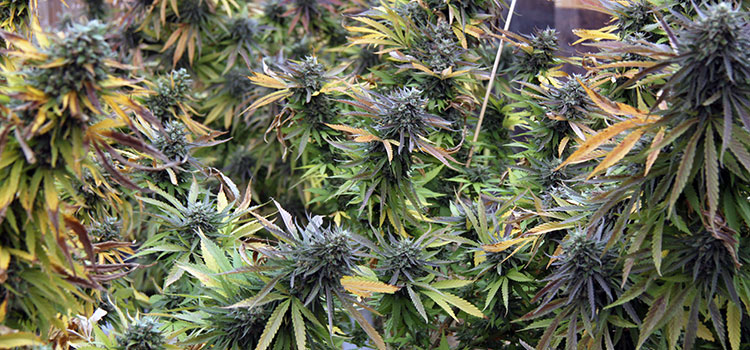

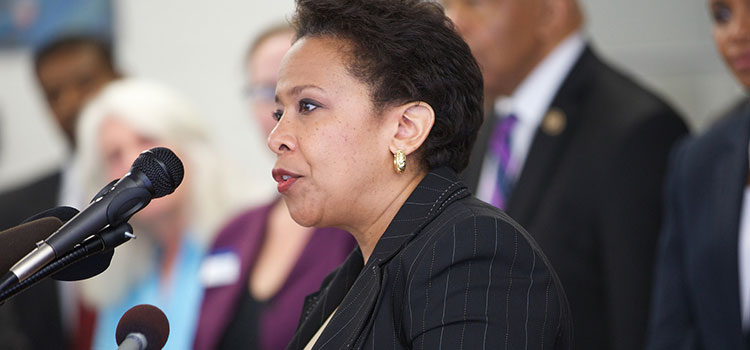






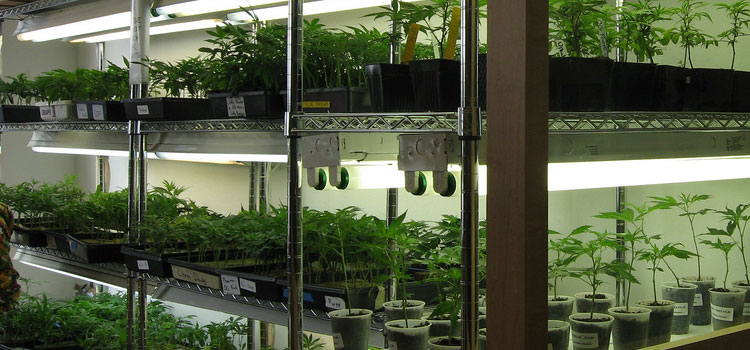



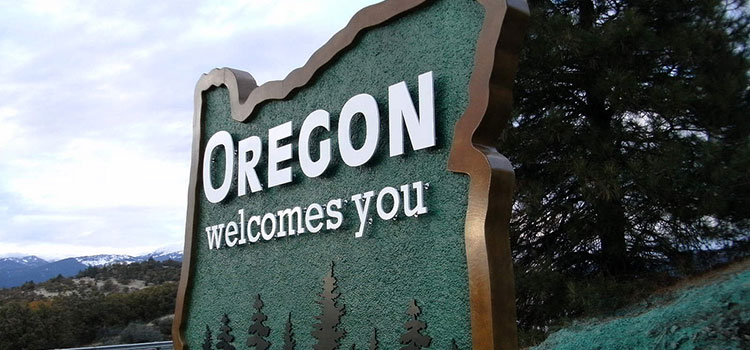
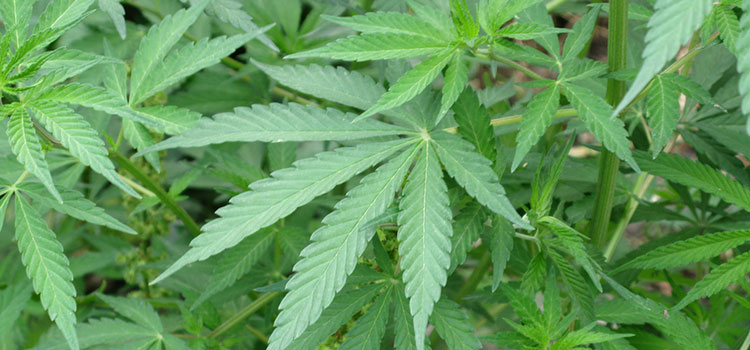


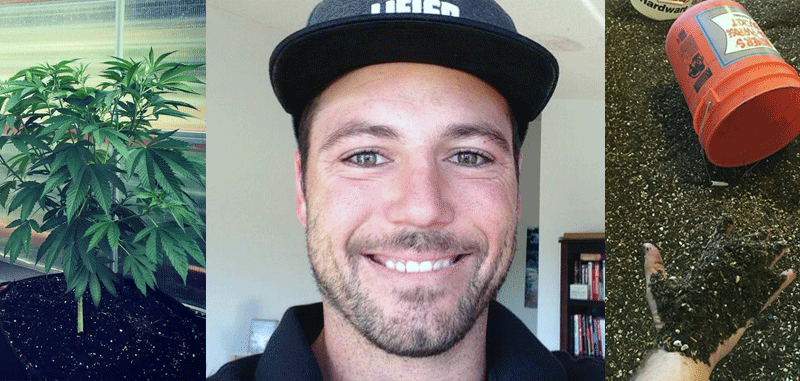
 Jeremy Silva is the founder of
Jeremy Silva is the founder of 
